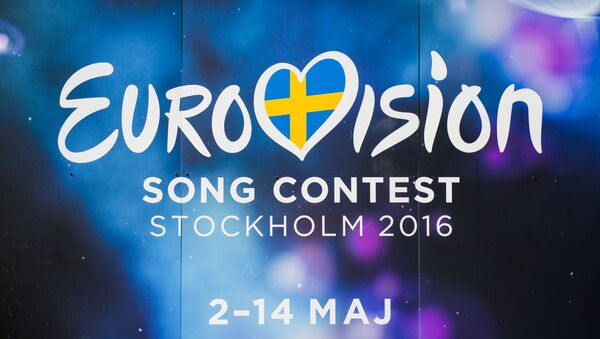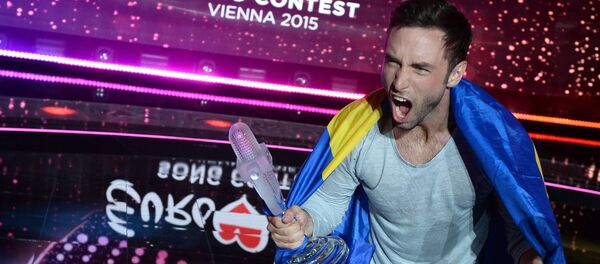Russia was the first to protest, followed by the Polish website Kresy.pl, which said that the map was very much like the ones previously published by the Ukrainian Foreign Ministry where the Polish cities of Przemysl and Chelm were featured as an integral part of Ukrainian territory.
“They used the map of Ukraine from an 1885 French history textbook, one presented by Ukrainian immigrants in Switzerland in 1916 and an Austrian map published back in 1890,” Kresy.pl wrote.
Jamala, a Ukrainian singer of mixed Tatar-Armenian origin, will represent her country at the prestigious musical contest. Her song "1944" brings back memories of the wartime deportation of Crimean Tatars to Central Asia for their mass-scale collaboration with the German Nazi invaders who occupied Crimea during the Second World War.
This is not the first a politically-tinged Eurovision performance by Ukrainian singers. After the so-called Orange Revolution of 2004 Ukrainian Vice Premier on Humanitarian Policy Mykola Tomenko arranged for a pro-Maidan hip-hop band GreenJolly to represent the country during the Eurovision 2005 contest.
While Tomenko later tried to justify his decision arguing that it needed to “reflect the dramatic changes in the society due to the recent Orange Revolution” the perceived government intervention into a musical contest attracted much criticism.
The final contest of Eurovision 2016 will take place later in May in Stockholm, Sweden. Russia will be represented by Sergei Lazarev, who will be singing the song "You Are the Only One."



